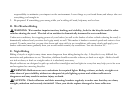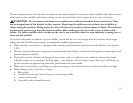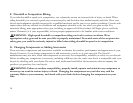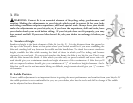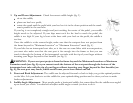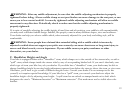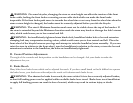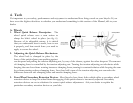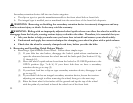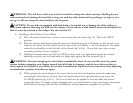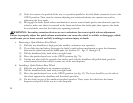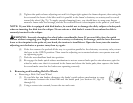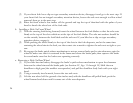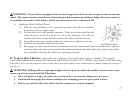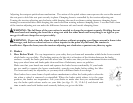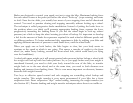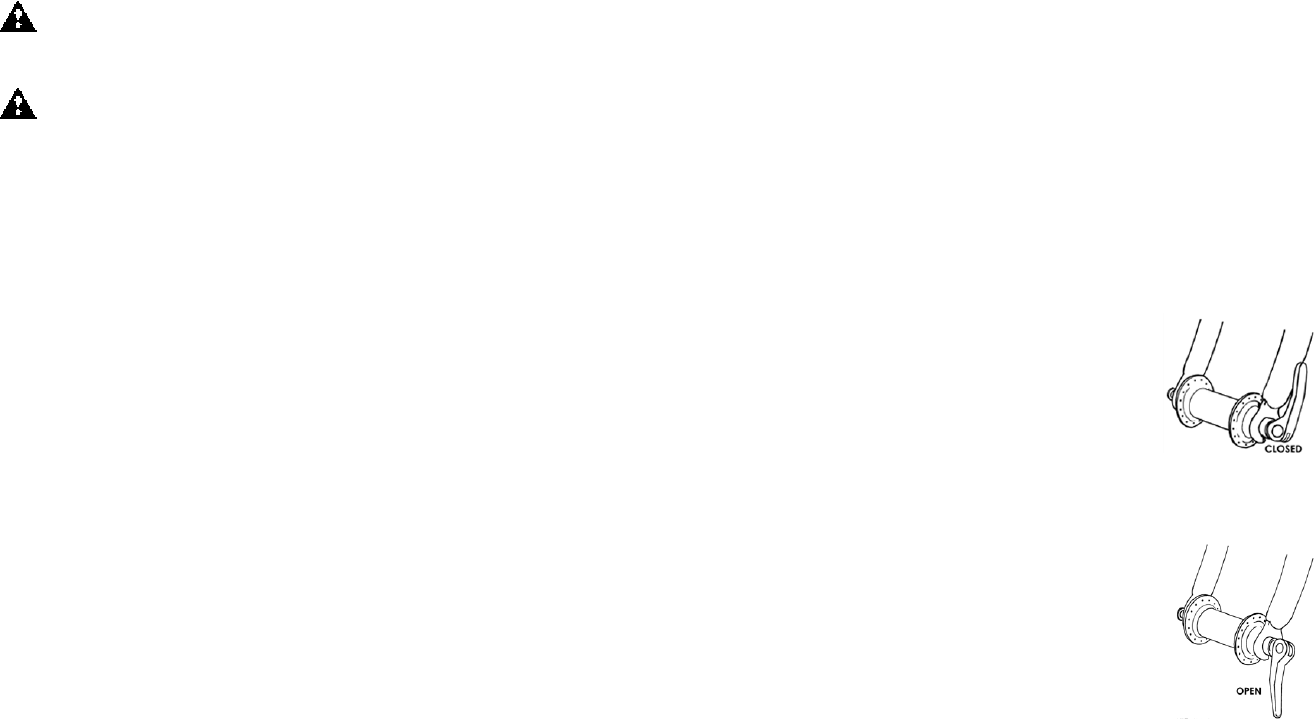
22
Secondary retention devices fall into two basic categories:
a. The clip-on type is a part the manufacturer adds to the front wheel hub or front fork.
b. The integral type is molded, cast or machined into the outer faces of the front fork dropouts.
WARNING: Removing or disabling the secondary retention device is extremely dangerous and may
lead to serious injury or death. It also may void the warranty.
WARNING: Riding with an improperly adjusted wheel quick release can allow the wheel to wobble or
disengage from the bicycle, causing serious injury or death to the rider. Therefore, it is essential that you:
•
Ask your dealer to help you make sure you know how to install and remove your wheels safely.
•
Understand and apply the correct technique for clamping your wheel in place with a quick release.
•
Check that the wheel is securely clamped each time, before you ride the bike.
4. Removing and Installing Quick Release Wheels
a. Removing a Quick Release Front Wheel. Follow these simple steps:
(1) If your bike has rim brakes, disengage the brake’s quick-release mechanism to
open the clearance between the wheel rim and the brake pads (See Section 4.C fig.
11 through 14).
(2) Move the wheel’s quick-release lever from the locked or CLOSED position to the
OPEN position (figs. 7a & b). If your front fork does no have a secondary
retention device go to step (5).
(3) If your front fork has a clip-on type secondary retention device, disengage it and
go to step (5).
(4) If your front fork has an integral secondary retention device, loosen the tension-
adjusting nut enough to allow removing the wheel; then go to the next step.
(5) Raise the front wheel a few inches off the ground and tap the top of the wheel
with the palm of your hand to knock the wheel out of the front fork.
fig. 7a
fig. 7b



